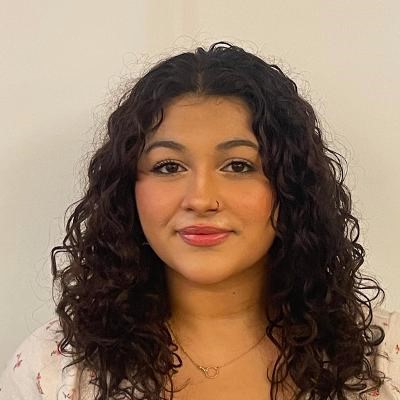Fall 2025 Winner of the Perseverance Scholarship
Aleena Haider

After sustaining injuries in a train accident, Aleena realized just how important it is for people to have support systems after a traumatic event. Through her studies and career, she is eager to one day serve as a support system for others. Congratulations Aleena – we look forward to all the positive things you will accomplish!
Read Her Essay
A split-second decision can have life-altering consequences. For me, the moment that shaped my understanding of distraction didn’t occur on a road, but rather on a train. November 16th, 2023, was an especially tense morning as I prepared to travel to campus and take my final math exam for the quarter. As I boarded the CTA Yellow Line train a little after 10:30 am, I suddenly noticed that an old friend had gotten on the train at the following station, and we quickly filled the space between us with laughter, life updates, and recollections of old memories. For a moment, my stress faded. It was a small comfort on an otherwise tense morning.
As the train passed under a bridge approaching Howard Station, our conversation was cut short by a violent jolt. The deafening, high-pitched squeals of metal folding into itself were followed by a brutal halt. It was the kind of impact that freezes time. It took me a moment to register what I was seeing, but I stared at the front of the train and realized it had morphed into a mangled mess of steel. People were lying with blood splattered across the floor, and I almost couldn’t comprehend what I was seeing. My friend was still beside me, shaking and wide-eyed, but otherwise unharmed. I realized my arm had instinctively reached across her body and held her in place. She was only inches away from a metal support beam that separated our seats. If I hadn’t reacted in that split second, she could have hit her head at full force.
Deafening screams of agony brought me back to the moment as I realized the train conductor was lying on the floor, wedged between metal debris. I tried to reach for my phone to call 911, and felt a dizzying headache paired with a sharp, paralyzing pain shooting through my left arm. I later learned I had suffered a whiplash-induced concussion and a contusion from hitting a steel bar during the impact. I didn’t know it at the time, but the train had collided with a snow-removal machine on the tracks at nearly 27 miles per hour.
Fifteen ambulances responded. Sixteen of the thirty-seven total people were injured, with three in critical condition.
In the weeks that followed, I struggled with physical pain and emotional disorientation, including migraines, noise sensitivity, and vertigo. I also had incredibly limited mobility in my left arm, and any sudden movement would cause intense pain. I attended multiple doctors' appointments to monitor my well-being. Beyond the medical recovery, I dealt with something much harder to overcome: fear. While I know that the vast majority of CTA operators perform their jobs with care and focus, the crash made one thing clear: accidents can happen, and I had no control. That realization created a persistent sense of vulnerability I could not shake for months. Every time I approached a CTA platform, I felt a debilitating sense of unease in my chest.
Eventually, I realized that fear and vulnerability could also be powerful life lessons. I learned to slow down, check in with myself, and pay closer attention to how I react in moments of stress and uncertainty. Recovery taught me patience, discipline, and the value of support systems, which are skills I carry into every part of my academic, personal, and professional life.
As a sociology major minoring in management with a concentration in human resources, my education has deepened my understanding of how people navigate systems and institutions, especially during times of crisis. The train crash gave me firsthand insight into the reality of feeling unseen and unsupported during a traumatic event. I want to use what I have learned both in and outside the classroom to promote equity, belonging, and care in the workplace.
My goal is to work in human resources at a nonprofit organization that focuses on diversity, equity, and inclusion initiatives. I hope to help build work environments where people feel respected, safe, and empowered to be themselves. I understand how quickly something ordinary can turn traumatic, and I know how important it is to have people around you who acknowledge your pain and advocate for your needs. My goal is to be that someone for others.
The challenges I faced after the crash did not just test my resilience, they also prepared me to navigate higher education by teaching me how to persevere through uncertainty, manage stress, and stay focused even when life feels unpredictable. They also transformed the way I think about leadership, responsibility, and human connection. It reaffirmed why I chose this professional and academic path. Sociology gives me the tools to analyze systemic structures and social dynamics, and HR gives me the structure to turn that insight into positive and genuine action. I want to create systems of support that are proactive and prioritize people rather than reactive ones that prioritize productivity.
Higher education has challenged me to think critically throughout the years, but this experience challenged me to live critically. It taught me to take what I learn and apply it with care every day, whether within my personal, academic, or professional life. This newfound perspective, more than anything else, is how my experience has prepared me for the future.







